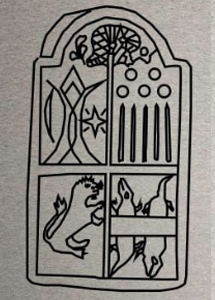
PADRE LUIS LOSADA / Philosopher, theologian, writer and poet from Quiroga in the 18th century.
- Birth: San Vitoiro (Quiroga), 1681
- Death: Salamanca, 1748
- Outstanding works:
-Curso de filosofía, Institutiones Dialecticae (1721)
–Loa a D. Felipe Gil de Taboada, presidente de la Real Chancillería de Valladolid (1716)
–Entremés del borracho (1721)
–Loa a la dedicación del nuevo Camarín de Nuestra Señora de las Ermitas (1729)
- Profession: Jesuit priest, university lecturer in theology and philosophy, writer.
Father Luis Losada was born in this house of the village of San Vitoiro, in the parish of La Ermida. His aristocracy family included forefathers belonging to the Commanders of the Order of St. John of Jerusalem.
As a child, Luis Losada showed a great talent for mathematics, physics, letters and languages. In fact, he mastered Hebrew, Greek, Spanish, Italian, French and, above all, Latin and Galician.
He spent most of his career in Salamanca, joined the Jesuits at the age of 16, studied humanities at the College of Vilargacía de Campos, Arts in Santiago de Compostela, Grammar in Monforte de Lemos and Theology at the University of Salamanca, where he was teaching. He signed his writings with multiple pseudonyms summing around 85 works, including the philosophy course Institutiones Dialecticae (1721).
In 1748, the Gaceta de Madrid (issue of 5 March) published an eulogistic obituary after his death in Salamanca, when he was 67 year old:
“El día 27. Del pasado muriò en Salamanca de 67. Años de edad el Padre Luis de Losada, de la Compañía de Jesus, sugeto de singular carácter por su constante estudio, vasta erudición, delicado gusto, y exacta critica en el escribir, con que supo conciliarse la mayor estimacion, y hacerse un merito muy particular entre los mayores sabios de España, y fuera de ella, que miraron sus producciones literarias como obras dignas de un hombre grande, y consumado, no siendo inferiores las prendas de virtud, y religion, que adornaron su espiritu”.
